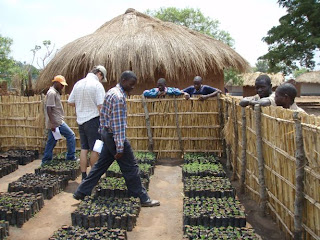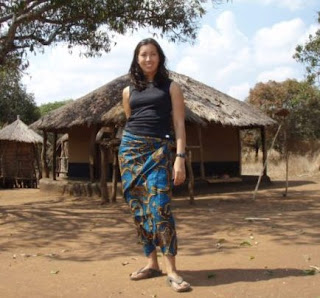Before I arrived, Total Landcare (TLC) had a previous EWB overseas volunteer staff (OVS) member working with them. Her main role was to help TLC develop a Monitoring and Evaluation (M&E) system to better understand how they are having impact with their programs and how they can more effectively have impact in the future.
What is M&E all about?
Monitoring = Regular information gathering and frequent checking of short term progress with analysis
Evaluation = To judge the value or worth of something
The International Fund for Agricultural Development (IFAD) publication “A Guide for Project M&E” (2002) gives a great overview of project M&E in development projects.
M&E is used to learn about five main aspects of the project (IFAD, 2002):
1. Relevance
2. Effectiveness
3. Efficiency
4. Impact
5. Sustainability
Effective M&E can:
- provide managers with information they need for day-to-day decisions;
- provide key stakeholders with the information needed to guide the project strategy;
- provide early warning of problematic activities and processes that need corrective action;
- help empower primary stakeholders by creating opportunities for them to reflect critically on the project’s direction and help decide on improvements;
- build understanding and capacity amongst those involved in the project;
- motivate and stimulate learning amongst those committed to making the project a success; and,
- assess progress so enable accountability requirements to be met (IFAD, 2002).
My Role!
The previous OVS helped improve the system of structures in place to deal with the flow of information between the field and the head office. These structures help to better capture lessons from the field and make sure that this knowledge is available to the decision makers at the head office.
My role now is to refine the system. I want to make sure it is sustainable and effective, and that the information gathered using it is being transformed into better decisions that lead to better and more sustainable impact.
Some of my basic goals are to help:
1) improve TLC's ability to collect, translate and deliver information;
2) internally allow TLC to monitor and evaluate their programming and impact so that they can maximize their future impact; and
3) improve internal communication.
In the past few weeks, my main tasks have been working on a set of standardized surveys to gather quantitative and qualitative information on all of our projects. This week I will be attending training on the use of Microsoft Access, after which I will construct a M&E database so we have a centralized system to store and access all of the data that has and will be gathered.
My role here will evolve as time goes on, so I will provide updated details in the future!






2 comments:
Hey Kim, thanks for the info on what you're up to. That sounds challenging! But also something that you are good at :)
take care! Laura
ps. Andy and Vanessa are arriving in Vancouver today! I miss our class...
Dude!
Hope everything's good down there. Bring back some Malawian (?) wine for me. Wendy says hi too!
OK. I'll send the e-mail that you requested ASAP!
Post a Comment